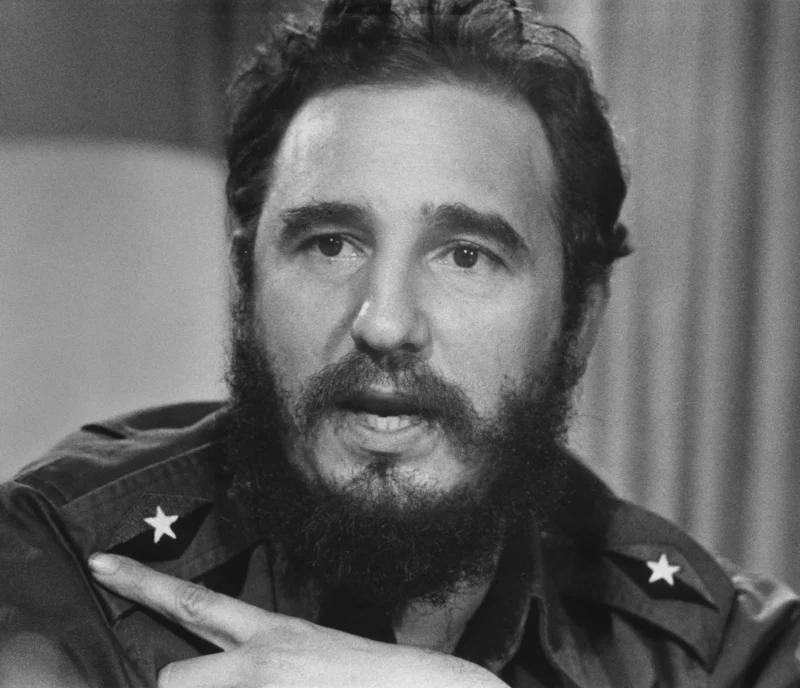I remember as a child, one day I sat in front of my Soviet Krim television, in the middle of my living room. Watching Fidel Alejandro Castro Ruz give a speech on television. It was July 26th, the date of the National Rebellion in Cuba. But I don’t remember exactly what year it was, but I do remember that I was a child.
Fidel was a master orator and gave long speeches because he explained every detail of every problem, and unfortunately, problems are the most abundant in a Revolution like Cuba’s. Which hasn’t allowed him to achieve all the good things he had planned for his program since his triumph on January 1st, 1959.
Also I don’t want to write the classic chronicle praising the politician, because today, when he would be one year older. If he were alive—because the living are the ones who celebrate birthdays. I want to highlight the human being behind the great international political figure he was.
When Fidel took to the streets of Cuba or traveled around the world. Even people who didn’t share his political ideals greeted him with affection. This was the case during a visit to New York when he recounted how, suddenly, a door at the United Nations opened and world leaders began filing through the entrance to greet President William Clinton.
He was astonished and had no choice but to accept the rules of political diplomacy and greet Clinton, with whose government Cuba had no diplomatic relations. However, it was a warm moment, as he himself would later recount his experience of that surprising moment.
His political enemies called him a dictator, but he was concerned with teaching his people how to read and write, which is strange, because tyrants aren’t interested in educating the masses in order to better govern and manipulate them.
Let the philosophy of plunder disappear, and the philosophy of war will have disappeared, he said on November 26th, 1960, at the United Nations. That’s why, as a leader, he was concerned with sending legions of doctors, teachers, and sports advisors to help the world’s poor, while Washington. As the world’s policeman, sent its army to protect democracy and freedom, but in reality, they left chaos, as happened in Gaddafi’s Libya, where Obama himself acknowledged his mistake after the US and NATO invasion left a poorer country in political chaos.
Fidel is always remembered for his classic famous quotes, but the most famous of all was: “Condemn me, history will absolve me!”
Why do some people have to walk barefoot so that others can travel in luxury cars? Why do some have to live 35 years so that others can live 70? Why do some have to be miserably poor so that others are excessively rich? I speak on behalf of the children of the world who don’t have a piece of bread. I speak on behalf of the sick who have no medicine, I speak on behalf of those who have been denied life and human dignity.
“The day I die, nothing will happen to the Revolution. A revolution is not the task of one man, it is the task of a people. No Revolution has disappeared because the leader has disappeared. Lenin died and the Revolution continued.”
Perhaps that’s why, when his ashes left Havana and traveled all over Cuba to his final resting place in the Santa Ifigenia Cemetery in Santiago de Cuba, the people paid tribute to him, saying, “We are all Fidel.” But I now remember that day, sitting alone in front of the television in my living room.
- Happiness, Appreciating What You Have - 6 de February de 2026
- When eating pizza doesn’t lead to Rome - 18 de January de 2026
- The Fright of Tuesday 13th: Between Religion, History, and Tradition - 13 de January de 2026

